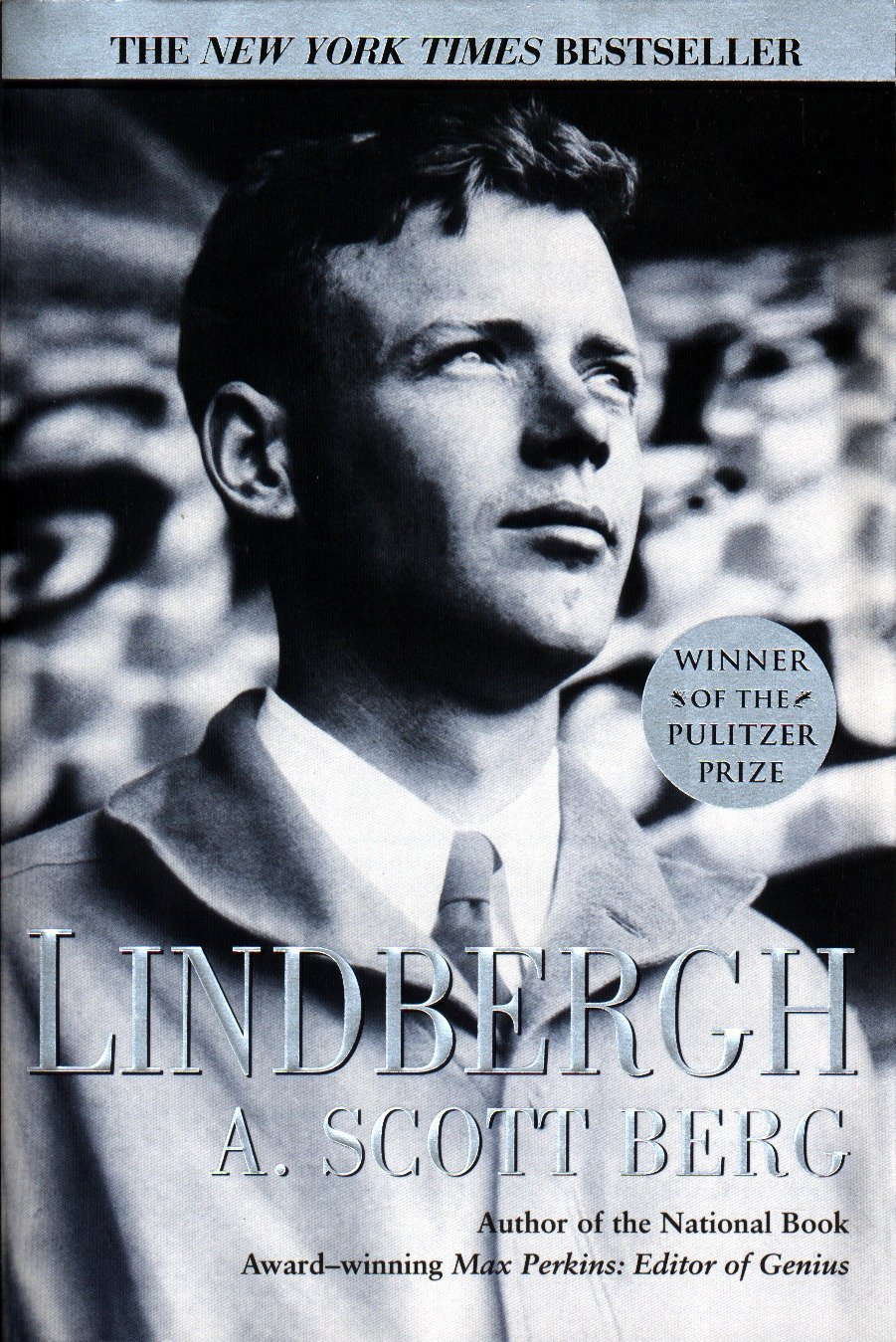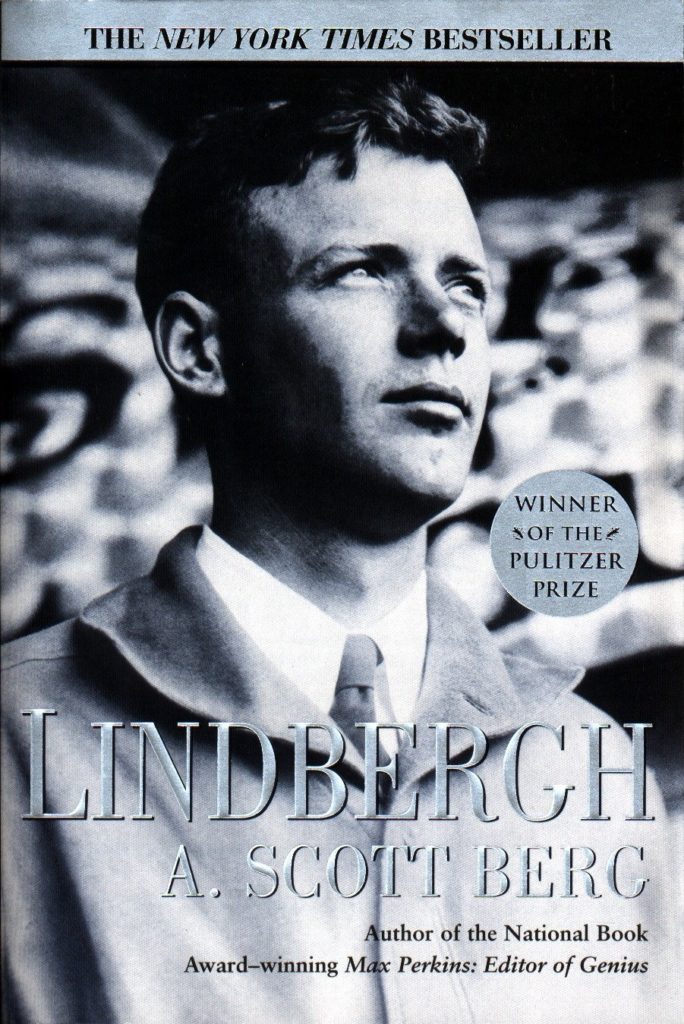
Few people in the history of humanity achieved the level of both fame and infamy that Charles Lindbergh did. He was a quiet, unassuming country boy who accomplished the impossible. A solo flight over the Atlantic from New York to Paris. In 1927, this news was what the world needed to hear. Overnight Lindbergh became a household name. Through his efforts, the airline industry came into being. His popularity and good looks made him the worlds most eligible bachelor, his shyness around women made him even more irresistible for the press. They constantly stocked him for any tidbits about his life. Finally, after several years of single life, big news broke on the shy flyer from Minnesota. He was marrying Ann. After a secret honeymoon, spent dodging reporters, he taught her how to fly, and together they soared around the world with her writing best-sellers about their adventures.
Sadly, tragedy struck this storybook couple. Their firstborn son was kidnapped and held for ransom. In a desperate attempt to recover their boy, they secretly paid the perpetrator, who managed to collect the money and avoid the police dragnet. The boy’s body was found months later, near the house where he was first kidnapped, he had not survived the first night of his capture. Eventually, the police caught the evil mastermind and brought him to justice. The whole sorted affair exponentially increased Charles Lindberg’s same. Something he never wanted in the first place.
Infamy now came calling for Lindbergh. He was against America joining the war. He predicted that if America entered the war. Their best and brightest would be lost. She would not be able to secure a complete defeat against the Germans, and Europe would be destroyed in the process. The real winners would be Communist Russia who would undoubtedly seize upon the opportunity to swallow up as much of Europe as possible. He was right about all of his predictions except one. America was able to defeat the Germans. Just tell the USA they can’t do something! Clearly, his gloomy forecast didn’t sit well with many American people.
Further clouding his reputation, Lindbergh accepted an award from the Nazi’s just before the war and regularly commented about how unbeatable German air-power was. He shrugged off news of Jewish oppression, even at times suggesting that it’s a good thing not to have too many Jews in any one country! When asked what to do if Britain fell, he simply didn’t really care too much. Communism was the real threat to America, and the Nazi war machine created an impressive buffer. Perhaps the Nazi’s and the American’s could team up to destroy Communism, he suggested. Also during this time, he got caught up in deeply troubling ideas surrounding eugenics.
President Roosevelt already didn’t like Lindbergh from a previous dust-up over airline corruption. Now with Lindbergh’s aggressive anti-war campaign, they were again at cross purposes. Roosevelt gained the upper hand over Lindbergh, the moment Japan bombed Pearl Harbour. America was going to war, and anyone against the idea must surely be a traitor. Lindbergh’s reputation was shot. Death threats on his life became a common occurrence.
Once the USA was committed to the war effort, Lindbergh was all in, but at the behest of the president of the United States no military arm was allowed to touch him. America’s most talented and celebrated flyer would have to sit the war out in shame. But Lindbergh was not one to let any obstacle stand in his way. He would serve his country, regardless of what the president said. Lindbergh made his way to the front lines as an “inspector” of aircraft for one of the companies that were supplying the military. He ended up flying over 50 “test” runs, in enemy territory. His heroism as an unofficial fighter pilot was not lost to the public. Fame returned to a degree, but there would be some who would never be able to view him as anything less than a Nazi loving Jew-hater.
Lindbergh’s relationship with the press was thorny at the best of times. He blamed them for the death of his firstborn. Lindbergh’s marriage was a mess. He never processed the grief of losing his son, and he felt the need for constant travel. He encouraged his wife’s writing career and was a huge supporter of her efforts to create a name for herself outside of his famous shadow. Unfortunately, he also badgered her and was incredibly insensitive to her most basic needs. He would be gone for months at a time, arrive home and become a micro-managing dictator. The children felt the strain as well, and though they adored their father, they came to prefer his absence more than his presence. In later years, Lindbergh struggled with regret for his part in the advancement of airline technology. He felt as though progress had led the world to the brink of extinction. He became an active conservationist responsible for saving whales and forests and animals.
Cancer finally claimed Lindbergh, but not without one final dramatic flight. He wanted to die in Hawaii, but he was too sick to travel. No matter, he was going anyway. He rebuffed the idea of chartering a plane, or tapping the military to transport him, both legitimate options and under the circumstances. Instead, he paid for the first-class section on a regular commercial airline. His stretcher was placed on top of the seats, and his long legs protruded out the curtain that separated him from the economy class. Not surprisingly he made it to Hawaii and died where he wanted to.
There is a lot to like about Lindberg, he had courage in spades, not just as a flyer but with his words as well. He simply didn’t care about “party line” or the consequences of a conviction. If Lindberg believed something was right, then he hung onto that belief no matter what. He wasn’t interested in popularity or politics or even money, and that’s refreshing. He seemed to be a very principled man. Unfortunately, the following paragraph calls into question that assertion.
Lindbergh was a very private man, and though the press hounded him all his days, he always managed to keep a step ahead of them. Scott Berg wrote this 626-page volume of Lindbergh in 1998, but a significant story was missing. Lindberg had 3 mistresses and sired 7 children with them in addition to the 6 he had with Ann. He provided financially for these extra families, regularly visiting them two to four times per year for over 20 years. How a man of his fame managed to keep his love affairs a secret for so long is a more significant accomplishment than his crossing the Atlantic in 1927! It’s no wonder that Charles and Ann’s marriage had problems!




